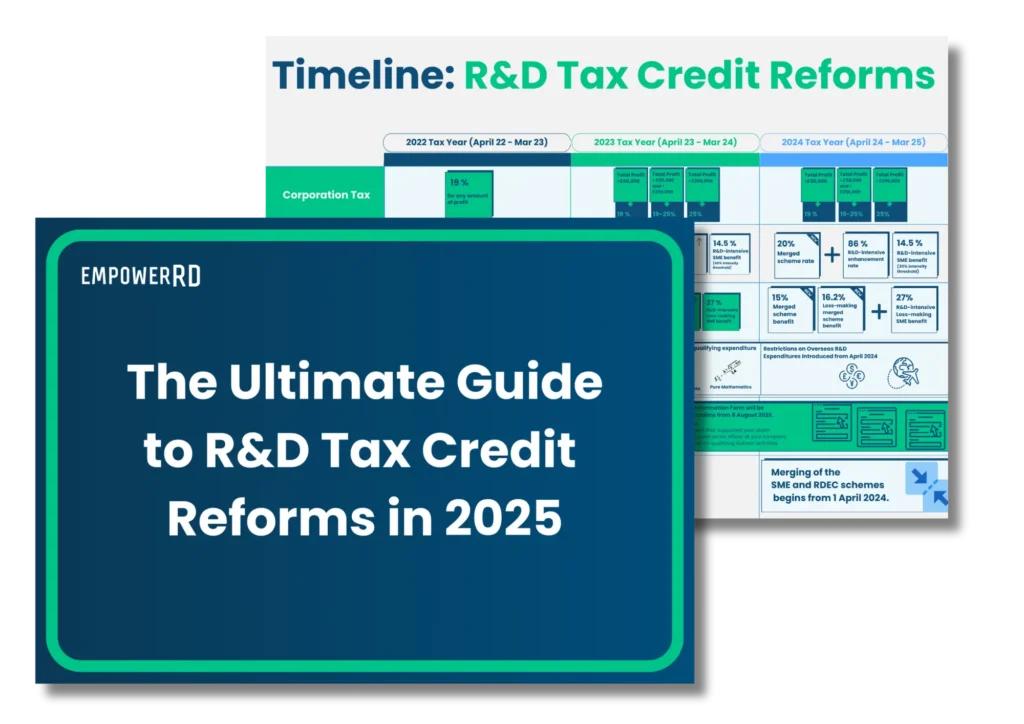Last year, a House of Lords subcommittee initiated an inquiry into the proposed R&D tax credit scheme reforms. After reviewing responses, they released their final report on 31 January.
The report echoes the government’s fears of fraud and abuse, but says that the proposed changes from April 2023 are unlikely to be impactful by themselves. It suggests that HMRC should invest further in its compliance efforts.
Our Head of Tax Jon Yeomans submitted our response to the inquiry, and we’re pleased to be referenced in the final report. Here are Jon’s 9 key takeaways from it:
1. Criticism of HMRC’s R&D compliance activities and capability included inconsistency of approach, failure to take account of information already received, poorly focused questions, and a reluctance to engage constructively with taxpayers and their agents.
2. A recommendation that HMRC reviews its current training programme for R&D teams to ensure it’s providing officers with the skills and knowledge to work effectively and appropriately with businesses on R&D relief. The subcommittee suggests the current approach is not aligned with HMRC’s charter.
3. Concerns that HMRC is being perceived as adopting an overly confrontational approach to R&D claimants and pointing out the HMRC charter applies as much to R&D as other areas of work.
4. A recommendation to drop the proposed pre-notification requirement, which meant companies would need to give notice of claims within six months after the end of their accounting period.
5. An urgent call for clearer BEIS and HMRC guidance and a rewriting of the CIRD.
6. A recommendation that HMRC and BEIS work together on a new awareness campaign aimed at providing SMEs with accurate information about what is, and as importantly, what is not R&D.
7. A recommendation that HMRC introduces a more collaborative approach to working with advisors and other stakeholders through the RDCF.
8. A recommendation that the government introduce some form of transitional relief for expenditure on specialised resources not available in the UK, particularly for contracts that have already been entered into.
9. The call for a further R&D consultation with stakeholders, but one that actually invites stakeholders to provide suggestions for change rather than looking for responses to pre-determined proposals.












